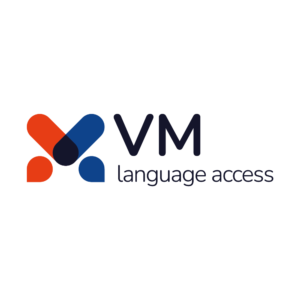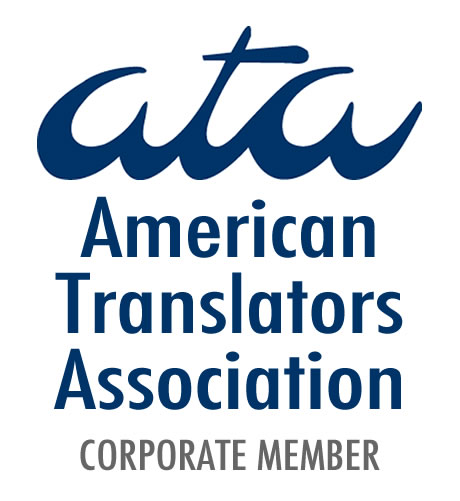
Certified Translation for Government Use: Why It’s Important
When dealing with official procedures, especially in the realm of immigration, legal matters, or governmental interactions, the importance of accuracy cannot be overstated. That’s where certified translation for government use becomes essential. Whether you’re applying for a visa, submitting court documents, or providing medical records for a government health program, certified translations ensure your documents are understood as intended. In this article, we’ll explore the significance of certified translations, how they work, and why they matter in government processes.
What is Certified Translation?
Certified translation refers to the process of translating a document from one language to another with a guarantee of accuracy. The translation is then accompanied by a certification statement from the translator or translation agency that attests to the accuracy and completeness of the document. This certification is usually required for official use, including government-related matters.
When a translation is certified, it means that the translator has sworn that the translation is a true and accurate representation of the original document. It’s also common for certified translations to include the translator’s qualifications and credentials to reassure the recipient that the translation is performed by a professional.
For government use, certified translations are often necessary to ensure that the translated document maintains the integrity of the original content. This includes legal language, technical terms, and personal information that could have significant consequences if mistranslated.
Common Documents Requiring Certified Translation for Government Use
Many documents require translation before being submitted to government agencies. While the requirements vary from country to country and from one government department to another, the following documents are commonly requested in certified translation:
- Immigration Documents: These include visas, green cards, citizenship applications, and asylum documents. Immigration authorities require accurate translations of documents like birth certificates, marriage certificates, and police records to assess eligibility for entry, residency, or citizenship.
- Legal Documents: Legal document translation services are vital for contracts, affidavits, court orders, power of attorney, and legal agreements. For these to be used in government or legal settings, they must be accurately translated to ensure they meet all legal standards.
- Medical Records: Medical translations for government health programs are also essential. This can include insurance documents, medical history reports, prescriptions, and vaccination records, all of which need to be translated accurately for processing claims or participation in public health initiatives.
- Educational Certificates: When applying for educational programs or professional recognition in a foreign country, applicants may need to submit transcripts, diplomas, or other academic records translated into the official language of that country.
- Personal Documents: Documents like birth, marriage, and death certificates often require certified translation for government purposes, especially in matters related to inheritance, family law, or national identification.
The Legal Significance of Certified Translations
One of the most important reasons for requiring certified translations is the legal significance of the documents. Government agencies rely on the accurate representation of the original document to make informed decisions. Legal documents, in particular, must be translated with a high level of precision since even small errors or misinterpretations can lead to serious consequences.
For example, a slight mistranslation of a name, date, or clause in a contract could invalidate a legal agreement. Similarly, inaccurate translations of immigration documents might delay or deny a visa or citizenship application. Legal document translation services, therefore, ensure that both the integrity of the document and the rights of the individual submitting it are protected.
Key Benefits of Certified Translation for Government Use
Accuracy and Precision
Certified translation for government use ensures that every detail in the original document is faithfully translated into the target language. Accuracy is crucial in government procedures because small errors could result in misunderstandings or misinterpretations that affect decisions on visas, legal cases, or healthcare programs. For instance, mistranslating a key term in an asylum application could affect an individual’s eligibility for asylum, which is why certified translation is non-negotiable.
Avoiding Delays and Rejections
Submitting non-certified translations can result in delays or outright rejections of your application. Government agencies are strict about ensuring the documents they receive are accurate and complete. If they believe the translation does not meet their standards, they may request a new translation or reject the document entirely, causing unnecessary delays in your process. Using certified translation services helps mitigate these risks and ensures smoother processing.
Meeting Compliance Standards
Government agencies have specific requirements for translations to ensure they comply with legal, health, and safety standards. These requirements are set by regulatory bodies, and using a certified translator ensures that the document is fully compliant with local laws and international agreements. Whether you’re submitting documents for immigration purposes, business transactions, or medical programs, certified translations help ensure that your documents meet all required standards.
Why Professional Translators Matter for Government Use
Certified translations are typically performed by professional translators with extensive expertise in specific fields. For government use, particularly when dealing with legal documents, healthcare information, or immigration paperwork, the translator must have in-depth knowledge of both the source and target languages. They should be familiar with technical terminology and legal jargon to accurately translate every term.
Certified translators often possess certifications or accreditations from recognized bodies such as the American Translators Association (ATA), which ensures they have met high standards for translation services. This level of professionalism is vital for government use because it guarantees that the translator is qualified to handle sensitive and important documents.
The translator’s background and credentials are usually included in the certification statement to further validate the quality of the translation. For government documents, the translator’s qualifications ensure that they are capable of translating complex materials with accuracy and precision.
Consequences of Using Uncertified or Poor-Quality Translations
When submitting documents to government agencies, the risks of using non-certified translations are high. A mistranslation can cause delays, denials, or even legal repercussions. For example, in the case of immigration, a small mistake in translating a birthdate, marital status, or personal history could lead to the rejection of your visa application. Similarly, in legal settings, a misinterpretation could invalidate a contract or other legal agreement.
There are also financial consequences to submitting incorrect or incomplete translations. Many government agencies may require a new translation or impose additional fees for resubmission. For important documents, this not only leads to wasted time but can also result in costly delays.
How to Choose the Right Certified Translation Service
Choosing the right certified translation service is crucial for ensuring that your documents are accurately translated for government use. When selecting a translation service, consider the following:
- Expertise in Legal and Government Terminology: Ensure that the translator is familiar with the specific terminology required for your documents. Whether you’re submitting immigration papers or legal contracts, you want someone who understands the nuances of legal language.
- Qualifications and Certifications: Look for translators who are certified by reputable organizations like the ATA, NAATI (National Accreditation Authority for Translators and Interpreters), or ISO-certified agencies. These credentials show that the translator meets professional standards.
- Timeliness and Cost: Government processes often have strict deadlines, so choose a translator who can provide services within your required timeframe. Also, get quotes from several agencies to ensure you’re getting a fair price for the quality of service.
- Reputation: Check reviews or testimonials from previous clients who have used the translation service for government submissions. A good track record can help ensure that your documents will be handled with care and accuracy.
The Future of Certified Translation for Government Use
With advancements in technology, machine translation tools like Google Translate and translation software have become more prevalent. However, human expertise will always be essential in ensuring accurate translations, particularly for official documents that require legal or technical knowledge. In the future, certified translation services may leverage AI tools for efficiency, but the need for human translators will remain strong for government use, especially for legal documents.
As the global economy continues to grow and people move across borders for work, education, and personal reasons, the demand for certified translation will only increase. Government agencies will continue to require certified translations to ensure that legal, immigration, and healthcare processes are fair and accurate.
Certified translation for government use plays a crucial role in ensuring that official documents are accurate, legally valid, and understood as intended. Whether you are submitting documents for immigration purposes, legal matters, or healthcare programs, certified translations guarantee that your documents meet all the necessary requirements. By choosing a professional translation service with expertise in legal and government terminology, you ensure that your documents will be processed smoothly and without delay. The accuracy and professionalism of certified translations help protect your rights and ensure that important processes, such as immigration applications or court cases, are handled with care and precision.











